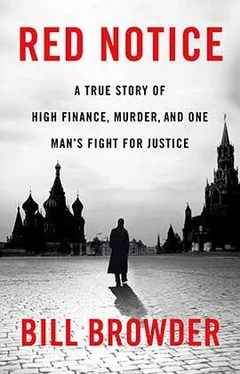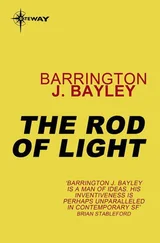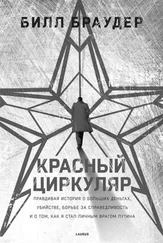When he finished his little speech, he said, «Mr. Browder, before you get to work, I must ask — is there anything we can do to make your stay in Sanok more pleasant?»
From the moment I’d walked into his office I had realized how warm it was, especially after my fitful night in my freezing room. I noticed a quietly buzzing space heater in the corner that emitted a comforting orange glow. Eyeing it, I nervously asked, «Do you think I could get a heater like that one for my room, sir?»
There was a moment of silence as Leschek translated. Then the general manager’s face lit up. With rosy cheeks, he winked and said, «Mr. Browder, we can do much better than that. We can get you a woman to keep you warm at night!»
I looked sheepishly at my shoes and stammered, «N-no thank you. A space heater will be just fine».
I promptly got to work, and my first week in Poland was the biggest culture shock I had experienced in my life. Everything in Sanok — the smells, the language, the customs — was different. But what made it particularly hard for me was the food. The only available meat was pork, and it was ubiquitous. Sausage for breakfast, ham sandwiches for lunch, pork chops for dinner — every single day. There were no fruits or vegetables. Chicken was a delicacy. Worst of all, every single meal was drenched in heavy grease, as if this were some kind of magical condiment that made everything more palatable, which it didn’t.
By day five I was starving. I had to do something and decided to go to Warsaw and check into the Marriott to get some decent food. As soon as I arrived, I dropped my bag in the room and headed for the restaurant. I had never been so happy to be at a hotel buffet in my life. I scooped piles of salad, fried chicken, roast beef, cheese, and French bread onto my plate and ate like a man possessed. I went back for seconds — and then thirds. By the time I was ready for dessert, my stomach started to rumble and I knew that if I didn’t hurry to a bathroom, I would be in trouble.
I made my way to the men’s room as fast as I could, but just as I was crossing the lobby, there was Wolfgang Schmidt standing right in front of me.
«Browner! What the hell are you doing in Warsaw?» he demanded.
I was so surprised to see him that I didn’t know what to say. «I–I just figured that since it was Friday night—"
«Friday night?» he barked. «Are you kidding? You need to get your ass back to Sanook—"
«Sanok», I corrected, shifting uncomfortably from foot to foot.
«Whatever the fuck. You need to get back there and integrate yourself with the client on the weekend. That’s how this business works».
The gas in my stomach was so intense, I barely heard Wolfgang. «O'kay. I’ll go back. Sorry. Really, I am». The bathroom was right there and time was wasting.
«All right, Browner». When he finally stepped aside, I hurried toward the toilet at full speed.
After the Wolfgang run-in I was so intimidated that I didn’t dare set foot in Warsaw again. Instead, on weekends I drove my little Polski Fiat around the countryside, foraging for food. I would stop at small restaurants and, since I didn’t speak a word of Polish, point at three or four random entrées on the menu hoping that one would be edible. I prayed for chicken and occasionally got it. I could afford to do this because the Polish zloty was so depressed that each dish cost the equivalent of forty-five US cents. It was fun to get out of Sanok, but no matter how far I went, the food was still generally awful. Eight weeks into the assignment, I had lost almost fifteen pounds.
The food situation was one of many signs of how dire everything was in Poland. Autosan was a total mess and faced imminent disaster. Following the economic «shock therapy» implemented after the fall of communism, the Polish government canceled all of its orders for Autosan buses. As a result, the company had lost 90 percent of its sales and would either have to find an entirely new customer base or drastically cut costs.
Finding new customers would be next to impossible because, at the time, Autosan made some of the worst buses in the world. The only plausible option for them to avoid bankruptcy was to fire a lot of people. Given that the whole town depended on this company for its livelihood, this was the last thing they needed — and the last thing I wanted to tell them. The whole thing left me feeling sick, and my romantic notions of doing business in Eastern Europe were quickly starting to disappear. I didn’t want to hurt these people.
Three weeks before the Christmas holidays, with my dread growing ever greater, I met Leschek for our ritual breakfast. I’d learned not to wander into ridiculous Samantha Fox — like conversations by simply being quiet, which he respected. In spite of our awkward start, I’d learned that Leschek was genuine and helpful, and after spending every day together for two months, I’d warmed to him. I felt sorry that he would be the one who had to translate my dire recommendations to the Autosan management team, and even more, I knew that when I finally left Sanok, I would actually miss him.
That morning, as I picked at slices of pork sausage, I glanced across the table at Leschek’s newspaper. He seemed to be perusing the personals, but then I looked closer. In little boxes were numbers — financial figures — surrounded by words I couldn’t read.
I leaned over and asked, «Leschek, what are those?»
«These are the very first Polish privatizations!» he announced proudly.
I’d heard that Poland was privatizing its formerly state-owned companies, but I was so wrapped up in Autosan that I hadn’t been following this at all. «That’s interesting… What’s that number?» I pointed to a figure near the top of the page.
«That’s the share price».
«And this one?»
«The profit from last year».
«How about that one?»
«The number of shares being offered».
I did some quick math. The share price valued this company at $80 million, while the company’s profits for the previous year were $160 million, which meant that the Polish government was selling this company for one-half of the previous year’s earnings! I was stunned. In simple terms, this meant that if you invested in this company and it stayed in business for six months, you would effectively make your money back.
I asked my questions again just to make sure that I wasn’t missing anything — and I wasn’t. This was extremely interesting. We went through the same exercise for some of the other companies in the newspaper, and the results were roughly the same.
I’d never bought a single share in my life, but as I lay in bed that night, I couldn’t stop thinking about the Polish privatizations. I thought, I need to do this. Isn’t this exactly what I went to business school for?
My net worth at the time was a total of $2,000. After confirming with John Lindquist that there were no rules against my buying the shares, I decided to invest all my money in these privatizations. I had the cash wired to me in Poland, then asked Leschek if he could help me. During our lunch break, we went to the local savings bank and stood in line to convert my money to Polish zloty, then walked to the post office to fill out the subscription forms for the privatizations. The process was complicated and required Leschek to make four trips to the teller window to ask questions about how to fill out the detailed forms. But in the end, I successfully subscribed to the very first privatizations in Eastern Europe.
In mid-December, I returned to London to prepare BCG’s final presentation to Autosan and the World Bank, which we would make after the holidays. I was completely conflicted. My analysis showed that the company should fire a good part of the workforce if it wanted to stay in business. But after spending so much time with these people, I knew that mass layoffs would decimate them. I didn’t know how some would survive. I thought about Leschek and his extended family, and I pictured the hardships they were already forced to endure. I had to recommend layoffs, but I wanted to soften the blow. I decided to couch the whole idea of firings as just one of the possible «strategic options» in our report, hoping the government would ultimately consider the other option: continuing to subsidize Autosan.
Читать дальше












